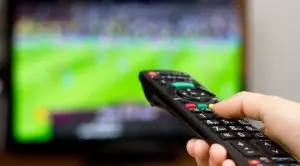 Broadcasters have faced calls to ban all gambling adverts during the European Championship as part of the efforts to provide better protection to consumers who are considered at risk of being affected by gambling-related harm.
Broadcasters have faced calls to ban all gambling adverts during the European Championship as part of the efforts to provide better protection to consumers who are considered at risk of being affected by gambling-related harm.
An open letter has been sent to broadcasters, including Sky Sports, ITV, Talksport and BT Sport by a group of 60 problem gamblers, Members of Parliament and clinicians, who claim there is strong evidence that gambling adverts affect the chance for people betting. Five Members of Parliament signed the letter, which is sent after reports claiming that advertising spending is expected to increase for big TV events that will be aired this summer.
According to reports, ITV alone aired a total of 172 gambling ads during the World Cup in 2018. The figure represented 17% of the overall number of adverts, or over 90 minutes of advertising, with the broadcaster facing severe criticism after the tournament.
Having that in mind, ITV explained that the number of gambling ads during Euro 2020 would be considerably minimised in comparison to the ones aired during the 2018 World Cup. BT Sport also responded to the calls, saying that it would not air live matches this time, so the number of gambling adverts would be less common.
The TV coverage of the European Championship in the UK will be provided by the BBC and ITV, while Talksport and BBC Radio 5 Live will provide the Championship’s radio coverage.
Voluntary Whistle-to-Whistle Gambling Advertising Ban Adopted by UK Gambling Operators
 Gambling companies in the UK already adopted a voluntary whistle-to-whistle gambling advertising ban for football matches aired on TV before the 9:00 PM watershed. Under it, broadcasters cannot show gambling adverts in the interval from five minutes before the game’s start to five minutes after the game’s ending.
Gambling companies in the UK already adopted a voluntary whistle-to-whistle gambling advertising ban for football matches aired on TV before the 9:00 PM watershed. Under it, broadcasters cannot show gambling adverts in the interval from five minutes before the game’s start to five minutes after the game’s ending.
The existing rules would not prevent people from seeing gambling adverts that will appear between games before the 9:00 PM watershed during the delayed European Championship from June 11th to July 11th. Still, ITV revealed most live matches it plans to air during the Championship will be subject to the whistle-to-whistle ban and will feature no gambling ads.
The authors of the open letter state that UK broadcasters need to make sure they properly protect the people who are most at risk of facing gambling-related harm. They also wrote that, according to a recent study, 54% of people classified as gambling addicts had spent money they had not previously intended to spend on gambling because of increased advertising during the coronavirus lockdown. According to campaigners, British viewers should be able to enjoy live football events without being targeted by gambling adverts, especially considering the negative effects of the Covid-19 crisis.
For several years, British campaigners have been trying to make the authorities consider stricter rules regarding gambling sponsorship deals with professional athletes and football clubs, as well as gambling advertising available on TV, radio and social media. They are willing to minimise the negative impact of problem gambling, which according to some new studies, has become stronger exactly because of the intense advertising off- and online.
- Author


